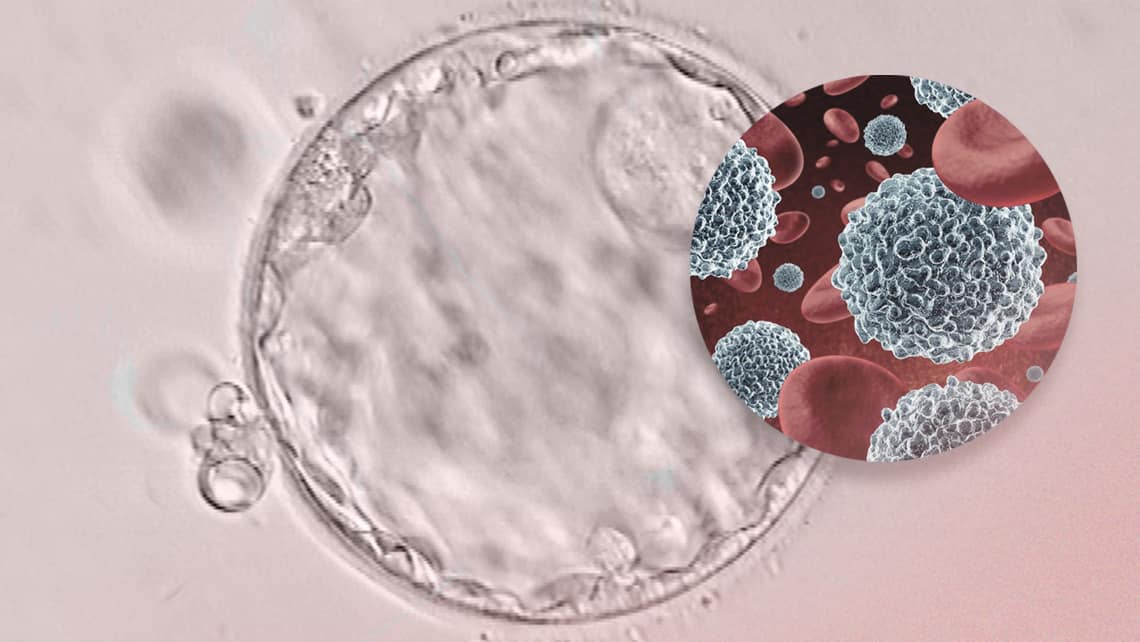
Can the immune system have an impact on implantation failure and recurrent pregnancy loss?
The immune system plays a very important role in the health of human beings, acting as a defence barrier against harmful organisms or substances.
Immunology is a very complex area when trying to get pregnant or as a pregnancy progresses and it involves an elevated number of cell types and molecules that need to work in a coordinated and balanced manner.
From an immunological point of view, the embryo is a foreign body and rejection may well be a logical response. However, a natural process takes place during pregnancy as a result of which the mother’s immune system does not respond negatively to the future baby. This process is known as immunological tolerance. This tolerance stems from a series of mechanisms in the foetus, the mother and the placenta.
The placenta is the organ that connects the mother to the embryo. It contains HLA-G, HLA-C and HLA-E molecules that interact with a special type of white cell called NK cells (Natural Killer) that have a receptor (KIR) that is responsible for the link. The presence of NKs in the uterus facilitates embryo implantation and the formation of blood vessels. However, this function needs to be balanced because an elevated response by NK cells could cause excess cell cytotoxicity. HLA-G in the embryo modulates NK cell activity. Recent research suggests that there needs to be compatibility between the KIR and HLA-G in order for a pregnancy to progress normally. As is the case with NK cells, the role of one type of lymphocyte known as T lymphocytes is absolutely crucial. There are different types of lymphocytes (for example, Th1, Th2, regulators, etc.) and there needs to be an appropriate balance between them all in order for a pregnancy to progress.
In spite of the significant progress that has been made in terms of our understanding of mother and foetus tolerance, substantial controversy on the matter persists and we are still unsure of the relevance of these factors and if treatment with immunosuppressants or immunomodulators may be beneficial in some way. This is, for the time being, an experimental matter. Well-designed research and the unification of criteria are necessary in order to be able to come to clear conclusions. It is a promising line of research.
Instituto Bernabeu has a Reproductive Immunology Unit within its Implantation Failure Unit that is staffed by experts from different specialities. Its aim is to evaluate and treat repeated implantation failure and recurrent pregnancy loss from an immunology perspective.
Dr Belén Lledó, Scientific Director at IBBIOTECH, part of the Instituto Bernabeu group.
